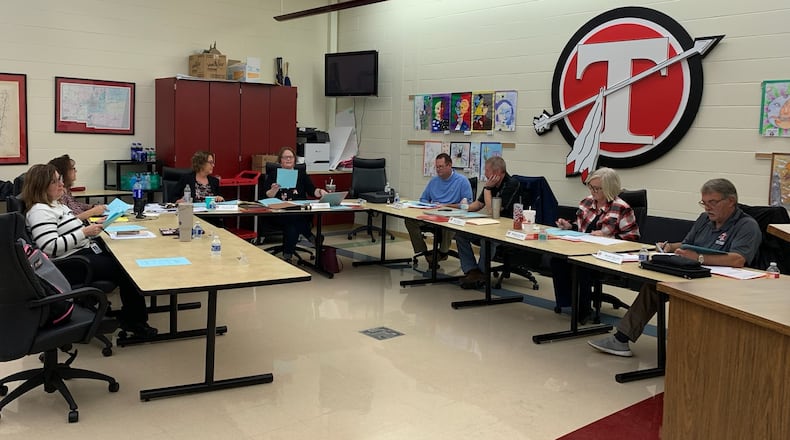When district officials asked residents to combine them last month, into a 10-year, 7-mill substitute levy for daily operating costs, voters rejected the idea, with 59% voting against it.
“We can pull those apart and put those on as renewals,” Superintendent Paula Crew said during a school board work session earlier this month. “We have one renewal that’s coming up in 2025 ... and that’s the bigger of the two renewals. The only two times we have left for (the bigger levy) is May and November.”
All five school board members voted yes, saying they should put the first renewal levy on the May ballot instead of going for another substitute levy again.
“We tried (the substitute) and the public told us what they thought of it,” said board member Matt Mills.
Crew said Tecumseh can’t put the second renewal on the ballot yet (the $791,000 one) because it doesn’t expire until 2027.
A renewal levy, if approved, extends an existing tax into the future, ensuring the school district receives the same amount of revenue as in past years. With renewal levies, sometimes the tax burden on individual residents declines over the years. A substitute levy keeps the existing tax rate the same into the future, but can result in increased revenue for the schools, if there is new construction.
District treasurer Denise Robinson will have to submit the levy information to the Clark County Auditor for certification, then the board will have a second vote, at their January meeting, to officially put the levy on the ballot. That would allow the district to file with the Board of Elections before the February deadline.
If the renewal doesn’t pass in May, the board is weighing its options related to cuts, but has “made routine reductions through the last 20-plus years,” Crew said.
Crew said they have continued to analyze their spending with a goal to refrain from deficit spending as long as they can by looking at reductions when possible. Crew said from 2019-25, the district has saved $1,074,000 by making several cuts.
According to district documents, Tecumseh eliminated two teaching jobs this year (first-grade and high school English), a special education supervisor last year and a high school secretary the year before that, along with some aides and part-time staff. Back from 2019-21, they eliminated the Arrow School of Advancement Program, and a career-based intervention program, while also cutting a high school assistant principal and a few other positions.
“As we experience an increase in costs in our own lives, our district experiences these increases as well,” Crew said, explaining the cost of electricity, water/sewage, gas, and oil has increased significantly over the last several years, going from $596,826 in 2020 to $804,221 in 2024. “These increases in cost, along with many other increases in costs realized by the district, will result in the district’s forecasted spending to be more than we bring in by approximately $1,663,495 in Fiscal Year 2025.″
The most recent five-year forecast document that Tecumseh Schools filed with the state, about a month ago, shows that the district has operated in the black each of the past three years, and as of June 2024, had close to half of a year’s spending in reserve. That’s very close to the average for a Dayton-area school district, according to research earlier this year.
The district projects increases in spending over the next several years that could create an annual deficit spending situation.
District officials said Tecumseh hasn’t passed a new levy for additional operating funding since 1995.
The district does have a history of successfully combining levies in the past. The $2.1 million levy that will be up for renewal exists in that form because two emergency levies that were originally passed in 1982 and 1995 were combined in 2019.
About the Author

